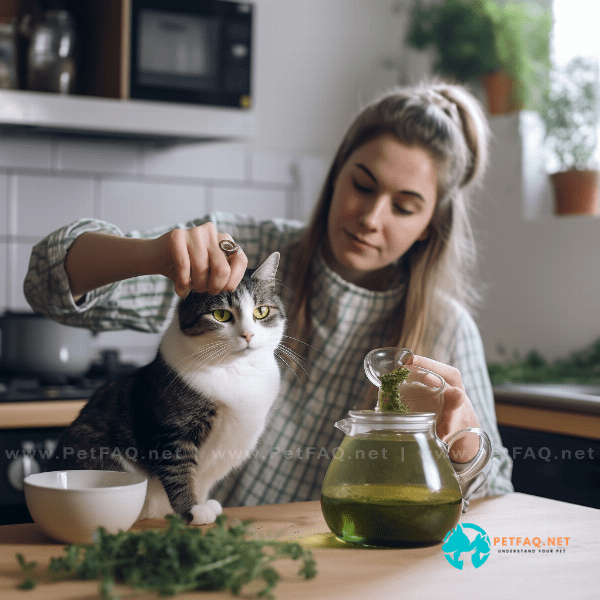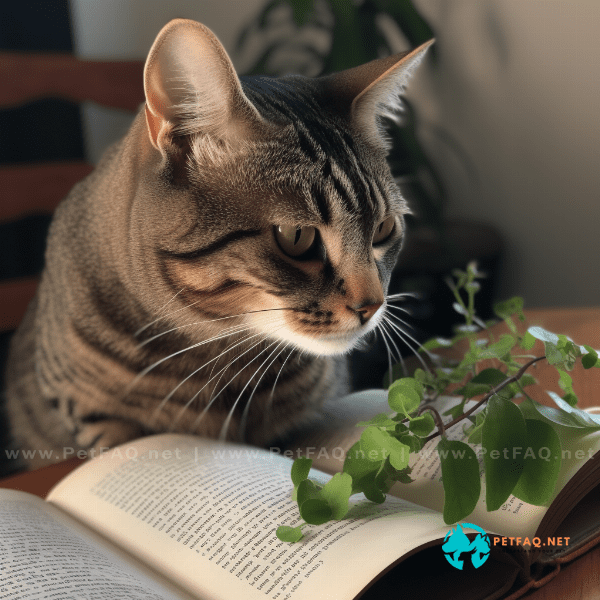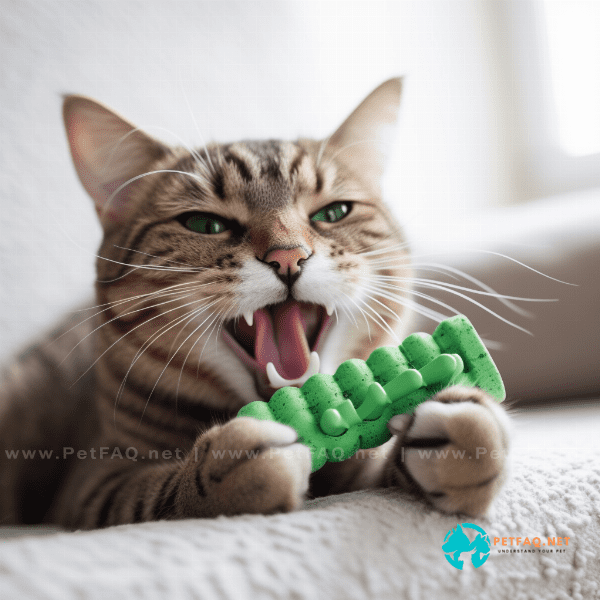Table of Contents
- Understanding Feline Anxiety: Symptoms and Causes
- What is Catnip and How Does it Work on Cats?
- The Science Behind Catnip’s Calming Effects on Cats
- How to Administer Catnip to Anxious Cats
- Other Natural Remedies for Cat Anxiety: Alternatives to Catnip
- Precautions and Risks to Consider When Using Catnip for Cat Anxiety
- Conclusion: Helping Your Cat Find Relief with Catnip
Understanding Feline Anxiety: Symptoms and Causes
Understanding Feline Anxiety: Symptoms and Causes
Cats can experience anxiety for various reasons, including environmental changes, fear of loud noises, separation anxiety, and past traumatic experiences. Cats may exhibit symptoms of anxiety that are not always easily recognizable. Therefore, it is important to understand the signs of anxiety in cats.
One common symptom of feline anxiety is excessive grooming, which can lead to hair loss and skin irritation. Cats may also display aggressive behavior, such as hissing, scratching, or biting. Other signs of anxiety may include hiding, refusing to eat, avoiding social interaction, and urinating outside of the litter box.
In addition to environmental factors, some cats may be predisposed to anxiety due to their genetics or personality traits. For example, some breeds of cats may be more prone to anxiety, while others may have a more laid-back personality.
It is essential to identify the underlying cause of your cat’s anxiety to address the problem effectively. In some cases, a simple change in the cat’s environment or routine may alleviate the symptoms. However, in other cases, a more comprehensive approach, such as medication or behavioral therapy, may be necessary.
If you suspect that your cat is experiencing anxiety, it is important to consult with your veterinarian. Your vet can help you determine the cause of your cat’s anxiety and recommend the appropriate course of treatment. In some cases, catnip may be a useful tool to help manage your cat’s anxiety, but it is important to use it appropriately and in consultation with your vet.
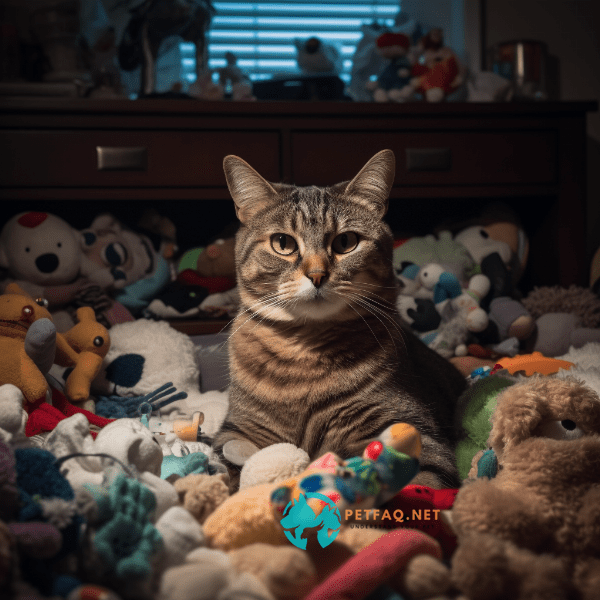
What is Catnip and How Does it Work on Cats?
What is Catnip and How Does it Work on Cats?
Catnip, also known as Nepeta cataria, is a type of herb that belongs to the mint family. It contains a compound called nepetalactone, which is responsible for the plant’s distinctive odor and its effect on cats. When cats inhale or ingest catnip, it can trigger a range of behaviors, including excitement, playfulness, and relaxation.
The way catnip works on cats is still not fully understood. However, it is believed that nepetalactone activates a response in the cat’s olfactory system, which is responsible for processing smells. This response can cause a variety of behaviors in cats, depending on the individual cat’s sensitivity to the compound.
While catnip is commonly associated with causing hyperactivity and playfulness in cats, it can also have a calming effect on some cats. When cats are exposed to catnip, it can cause them to become more relaxed and less anxious.
It is important to note that not all cats respond to catnip in the same way. While some cats may be highly sensitive to the compound and exhibit strong reactions, others may show no response at all. Additionally, the effects of catnip on cats are temporary and typically last between 5 and 15 minutes.
If you are considering using catnip to help manage your cat’s anxiety, it is important to use it appropriately and in consultation with your veterinarian. While catnip can be a useful tool to help soothe anxious cats, it is not a substitute for proper medical care and behavioral therapy.
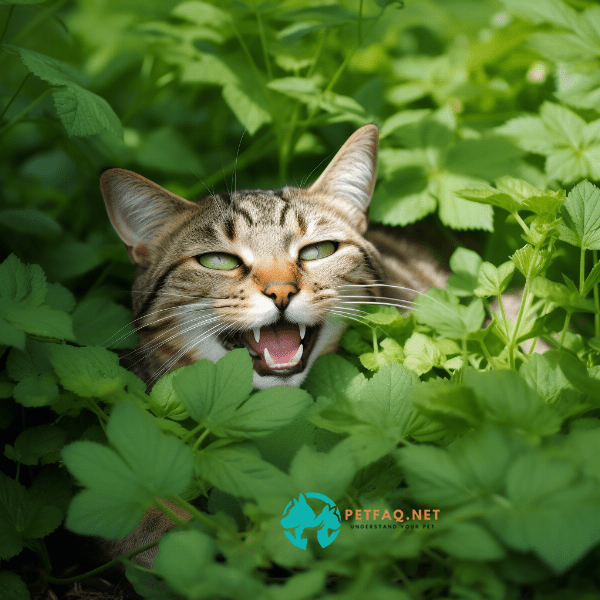
The Science Behind Catnip’s Calming Effects on Cats
Catnip, also known as Nepeta cataria, is a herb that is a member of the mint family. It is a popular herb among cat owners as it has been known to produce a euphoric and calming effect on cats. Many cat owners use catnip to alleviate anxiety in their feline companions, but what is the science behind catnip’s calming effects on cats?
The active ingredient in catnip is nepetalactone, which is a type of terpenoid. When a cat sniffs or ingests catnip, nepetalactone binds to certain receptors in the cat’s brain, specifically the olfactory receptors and the amygdala. These receptors are responsible for regulating the cat’s emotions, such as fear, anxiety, and pleasure.
When nepetalactone binds to the olfactory receptors, it triggers a release of endorphins in the cat’s brain. Endorphins are natural chemicals that produce feelings of happiness and pleasure in the brain. This release of endorphins can create a sense of euphoria in the cat and promote a sense of calmness and relaxation.
Additionally, when nepetalactone binds to the amygdala, it can also activate the cat’s “fight or flight” response. This response is responsible for the cat’s natural survival instincts, which can cause feelings of anxiety or stress. However, the amount of nepetalactone found in catnip is not high enough to activate this response in most cats. Instead, it has a calming effect on the cat, which can help alleviate anxiety and stress.
It’s important to note that not all cats will react to catnip in the same way. While most cats will experience a sense of euphoria and calmness, some may become more agitated or aggressive. Additionally, some cats may not be affected by catnip at all. It is also important to use catnip in moderation, as too much can cause digestive issues in cats.
In conclusion, the science behind catnip’s calming effects on cats lies in its active ingredient, nepetalactone, which triggers the release of endorphins in the cat’s brain and promotes a sense of calmness and relaxation. While it may not work for every cat, using catnip in moderation can be a natural and effective way to alleviate anxiety in feline companions.

How to Administer Catnip to Anxious Cats
If you have an anxious cat, administering catnip can be an effective and natural way to alleviate their stress and anxiety. However, it’s important to administer catnip in the right way to ensure that your cat benefits from it. Here are some tips on how to administer catnip to anxious cats:
1. Choose the Right Type of Catnip: There are different types of catnip available in the market, including dried catnip, catnip spray, and catnip toys. Choose the type of catnip that your cat responds to best.
2. Use Catnip Sparingly: It’s important to use catnip in moderation as too much of it can cause digestive issues in cats. You can start by giving your cat a small amount of catnip and increase the quantity gradually over time.
3. Avoid Overstimulation: While catnip has a calming effect on most cats, some cats may become overstimulated and aggressive. Make sure to monitor your cat’s behavior after administering catnip and stop using it if you notice any signs of aggression or overstimulation.
4. Offer Catnip in a Calm Environment: It’s best to offer catnip to your cat in a calm and quiet environment where they feel safe and comfortable. This will help them to relax and enjoy the calming effects of catnip.
5. Use Catnip as a Treat or Distraction: You can use catnip as a treat or a distraction for your cat when they are feeling anxious or stressed. For instance, you can give your cat a toy infused with catnip to distract them when you leave the house.
6. Store Catnip Properly: Make sure to store catnip in a cool and dry place, away from direct sunlight. This will help to preserve its potency and freshness.
In conclusion, administering catnip to anxious cats can be a natural and effective way to alleviate their stress and anxiety. By following these tips on how to administer catnip to anxious cats, you can help your feline companion to relax and feel calm. Remember to always monitor your cat’s behavior after administering catnip and consult with your veterinarian if you have any concerns.
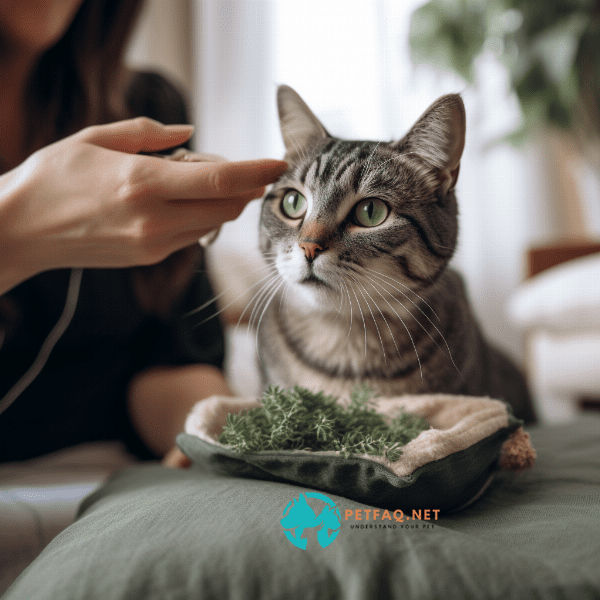
Other Natural Remedies for Cat Anxiety: Alternatives to Catnip
While catnip is a popular and effective natural remedy for cat anxiety, it may not work for every cat. Fortunately, there are other natural remedies that can help alleviate anxiety in cats. Here are some alternatives to catnip that you can try:
1. Valerian Root: Valerian root is an herb that has a calming effect on the nervous system. It can be used to alleviate anxiety in cats, and it is available in supplement form or as an ingredient in cat treats.
2. Chamomile: Chamomile is another herb that has a calming effect on cats. It can be administered as a tea or a supplement, or it can be added to cat treats.
3. Lavender: Lavender is a popular aromatherapy remedy for anxiety in humans, and it can also be effective for cats. You can use lavender essential oil to calm your cat by adding a few drops to a diffuser or a spray bottle.
4. CBD Oil: CBD oil is a non-psychoactive compound found in hemp plants that has a calming effect on the nervous system. It is available in various forms, including treats and tinctures, and can be used to alleviate anxiety in cats.
5. Music Therapy: Playing calming music can also help to alleviate anxiety in cats. There are many playlists available that are specifically designed for cats, featuring soothing sounds that can help your cat to relax.
In conclusion, while catnip is an effective natural remedy for cat anxiety, there are other alternatives that can be used if catnip does not work for your cat. Valerian root, chamomile, lavender, CBD oil, and music therapy are all natural remedies that can help to alleviate anxiety in cats. As always, it’s important to consult with your veterinarian before administering any new treatments to your cat.
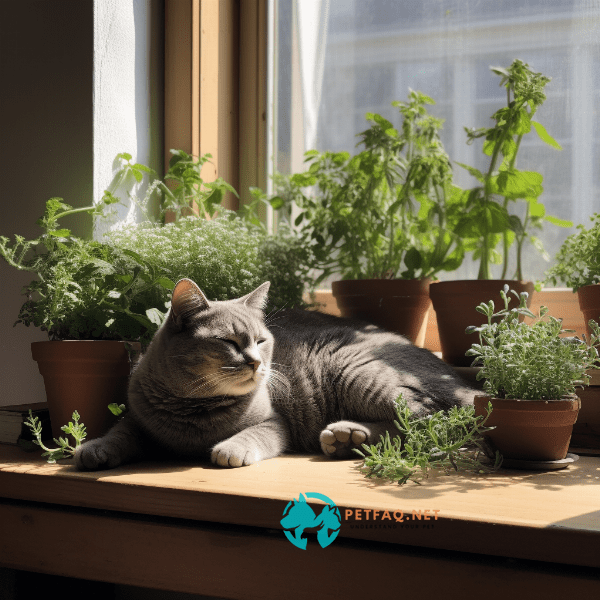
Precautions and Risks to Consider When Using Catnip for Cat Anxiety
While catnip is generally considered safe for cats, there are some precautions and risks to consider when using it for cat anxiety. Here are some important things to keep in mind:
1. Not All Cats Respond to Catnip: While most cats respond to catnip, not all of them do. In fact, some cats may even be repelled by it. If you’ve never given your cat catnip before, start with a small amount to see how they react.
2. Use Catnip in Moderation: While catnip is safe for cats in small amounts, using too much of it can cause digestive issues such as vomiting or diarrhea. Make sure to use catnip in moderation and monitor your cat’s behavior and reactions closely.
3. Catnip May Have an Intoxication Effect: Catnip can have a mild intoxication effect on cats, similar to the way some humans may react to alcohol. Some cats may become overly playful, while others may become lethargic. Make sure to monitor your cat’s behavior and stop using catnip if you notice any signs of overstimulation or aggression.
4. Catnip May Interact with Other Medications: If your cat is on any medications, it’s important to consult with your veterinarian before administering catnip. Catnip may interact with certain medications, so it’s important to make sure that it is safe for your cat to use.
5. Use Catnip Responsibly: While catnip can be a helpful tool in managing cat anxiety, it should not be used as a substitute for veterinary care. If your cat is experiencing severe anxiety, it’s important to seek professional help from a veterinarian or a qualified animal behaviorist.
In conclusion, catnip can be a safe and effective natural remedy for cat anxiety when used responsibly. However, it’s important to keep in mind the precautions and risks associated with catnip use, and to monitor your cat’s behavior and reactions closely. If you have any concerns about using catnip or other natural remedies for your cat’s anxiety, consult with your veterinarian for guidance.
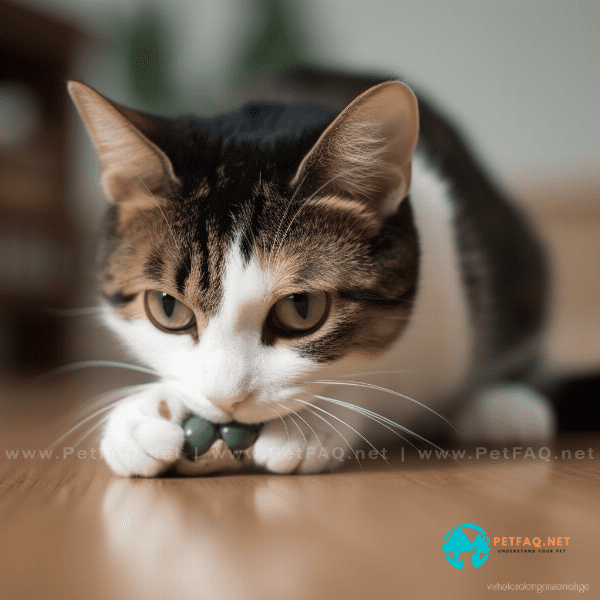
Conclusion: Helping Your Cat Find Relief with Catnip
In conclusion, catnip can be a valuable tool in managing anxiety in cats. It’s a safe and natural alternative to traditional medications, and it can help your cat to feel more relaxed and comfortable.
When using Catnip for Cat Anxiety, it’s important to start with a small amount and monitor your cat’s behavior and reactions closely. Use catnip in moderation and be aware of the potential risks and precautions associated with its use.
If your cat doesn’t respond well to catnip, or if you’re looking for additional natural remedies, there are other options to consider, such as valerian root, chamomile, lavender, CBD oil, and music therapy.
It’s important to remember that while natural remedies like catnip can be helpful, they are not a substitute for professional veterinary care. If your cat is experiencing severe anxiety or other health issues, it’s important to seek guidance from a veterinarian.
In conclusion, catnip can be a helpful tool in managing cat anxiety, but it’s important to use it responsibly and in conjunction with veterinary care. With the right approach, you can help your cat find relief and enjoy a more relaxed and comfortable life.
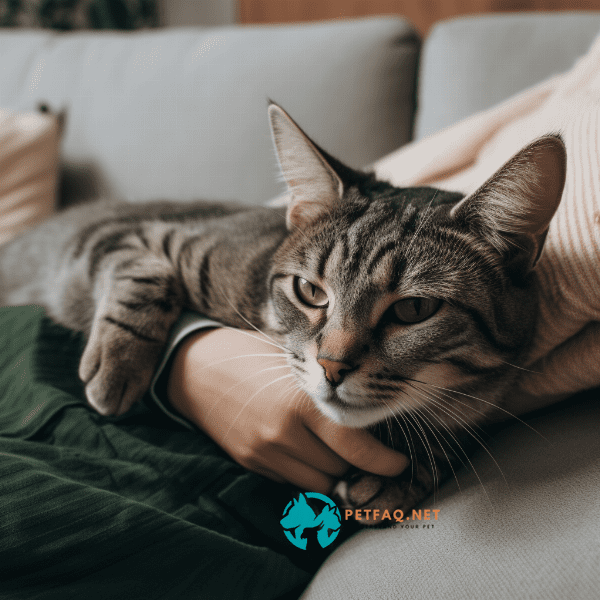
Frequently Asked Questions (FAQs) about Catnip for anxiety in cats:
1. How often should catnip be given to a cat with anxiety?2. What is catnip and how does it work to reduce anxiety in cats?
3. Can cats become addicted to catnip if it is used frequently for anxiety relief?
4. What is catnip and how does it work in cats?
5. Are there any risks associated with giving too much catnip to a cat?

